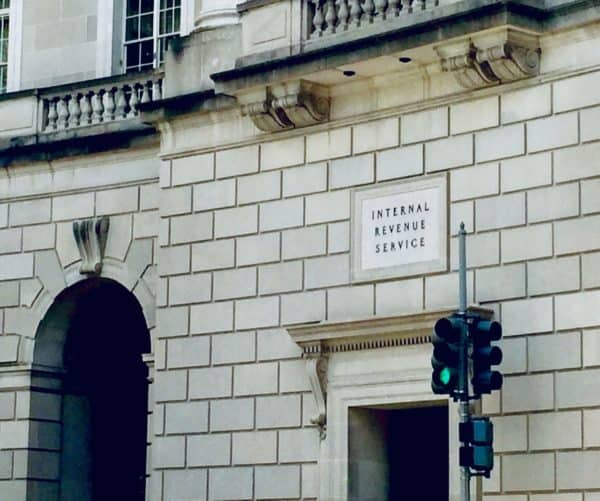Uncategorized
How Tax Authorities Ought to Deal with Cryptocurrency Staking Rewards
Let me begin with a confession: I’m not sensible sufficient to be a tax lawyer, actually not a US tax lawyer. The intricacies of the US tax code defy my mind’s makes an attempt to systematize a coherent taxonomy. The tax code is just too complicated and diversified for me, regardless that I’ve spent my almost 30-year profession untangling the difficult schemes of the federal securities legal guidelines and monetary companies regulatory regimes. And on prime of the principles themselves, there are interpretations and lore that compound the problem.
Thankfully, there are folks like Abe Sutherland, the creator of quite a few articles on one very specific space of US tax regulation: the remedy of cryptocurrency staking rewards created on public, permissionless blockchain platforms that use a proof of stake consensus mechanism (described in additional element beneath). Most not too long ago, he put collectively a primer on the query as a approach to introduce extra folks to the proper evaluation.
Abe thinks this subject is straightforward as a result of the cryptocurrency tokens created via staking, what he calls “reward tokens”, are new property deserving the identical remedy as crops grown from seeds, livestock born on the farm, newly mined valuable metals, novels, or songs newly written, newly manufactured gadgets, and the concept for a brand new monetary instrument. Because the primer notes:
“New property . . . isn’t speedy earnings to its first proprietor.” Relatively, “[n]ew property offers rise to taxable earnings when it’s bought, not when it’s created.”
I rapidly grasped this idea as a result of it made sense with my understanding of how proof of stake consensus works on these blockchain platforms. A substitute for proof of labor consensus used within the unique Bitcoin blockchain, proof of stake is the means by which the system and sure of its individuals agree on updates to the blockchain. Put one other method, it’s how the database will get up to date with new data.
 At its core, proof of stake requires quite a few tokenholders to “lock” the native system tokens they maintain into the platform for the flexibility to take turns including the blocks of information that construct the blockchain and replace its database. The tokens are “locked” by posting them into the platform’s staking software (a part of its programming) that freezes the tokens in order that they can’t be transferred till faraway from the applying. The locked tokens type the tokenholder’s “stake,” which the staking software then evaluates in accordance with its programming to find out when the actual tokenholder takes their flip at validating a block (that’s, including the knowledge to the blockchain database).
At its core, proof of stake requires quite a few tokenholders to “lock” the native system tokens they maintain into the platform for the flexibility to take turns including the blocks of information that construct the blockchain and replace its database. The tokens are “locked” by posting them into the platform’s staking software (a part of its programming) that freezes the tokens in order that they can’t be transferred till faraway from the applying. The locked tokens type the tokenholder’s “stake,” which the staking software then evaluates in accordance with its programming to find out when the actual tokenholder takes their flip at validating a block (that’s, including the knowledge to the blockchain database).
The precise methodology used to select how stakers take turns doing validation will not be important to the tax evaluation as a result of for the brand new property tax evaluation it should be true that the validator’s act of forming the most recent block concurrently creates a number of new native system tokens. These new tokens point out to everybody that the block has been added to the blockchain and incentivize tokenholders to conduct the necessary actions of staking tokens and forming blocks with a view to safe the community. That safety is achieved by including new blocks that make the chain too lengthy for an attacker to duplicate with incorrect or manipulated knowledge. Having a number of staking tokenholders additionally leads to the distribution and decentralization of the community which can be required for safety and immutability. The stakers’ job is crucial to the survival and integrity of the platform, which in flip is why the forming of a brand new block leads to the creation of latest native system tokens.
Along with the intuitive “new property” evaluation, Abe’s primer discusses a number of different causes for taxing staking rewards upon sale quite than upon acquisition.
“To simplify, . . . [t]he sensible issues contain the administration of the earnings tax and the prices of compliance [and t]he financial drawback arises from the overstatement of acquire – and ensuing overtaxation . . ..”
 The primer then explains the sensible issues by laying out intimately how tough or not possible it might be to know when a reward token was created by a staker for functions of building the time at which it must be valued beneath a tax scheme that handled reward tokens as compensation. Even with out the timing query, there are questions on what knowledge supply(s) would set up the worth. The primer supplies examples of those factors using the Tezos, Cosmos and Ethereum 2.zero blockchains. Each of those issues are solved by taxing reward tokens on the time of sale, when each the proper second and valuation are simply ascertainable.
The primer then explains the sensible issues by laying out intimately how tough or not possible it might be to know when a reward token was created by a staker for functions of building the time at which it must be valued beneath a tax scheme that handled reward tokens as compensation. Even with out the timing query, there are questions on what knowledge supply(s) would set up the worth. The primer supplies examples of those factors using the Tezos, Cosmos and Ethereum 2.zero blockchains. Each of those issues are solved by taxing reward tokens on the time of sale, when each the proper second and valuation are simply ascertainable.
The financial drawback of overstatement of financial acquire stems from the truth that reward tokens don’t signify a commensurate improve within the staker’s proportion of all excellent tokens. Reward tokens improve the general token provide and are sometimes distributed professional rata to all stakers. They, subsequently, usually are not the equal of an outsized profit to the staker who created any specific reward, as one would count on from “compensation.” As such, the financial profit to the creating staker will not be a fee or earnings however only a prorated portion of the general system inflation.
With the analytical framework, practicalities and financial realities supporting his conclusion, Abe continues his quest to ensure everybody understands these points and sees the right tax remedy. Along with his nice demeanor, easy rationalization, and dogged willpower, the Proof of Stake Alliance (“POSA”), which sponsors his work, has an efficient advocate.
Abe actually took this scared taxpayer and made me perceive. Maybe 2021 would be the 12 months that tax authorities agree with him.
Disclosure: POSA is the main coverage and advocacy group for proof of stake blockchain networks. I joined POSA’s Board of Administrators efficient January 1, 2021, however Abe and I’ve been discussing his evaluation for a great a part of 2020.
 Lee A. Schneider is Basic Counsel at Block.one, one of many world’s largest blockchain corporations and creator of the EOSIO blockchain protocol. In that function, Schneider is chargeable for numerous elements of the authorized perform in addition to the corporate’s authorities affairs initiatives. He joined Block.one after main the blockchain, Fintech, and broker-dealer practices at two main worldwide companies. Lee has been acknowledged as one of many main voices in blockchain-related regulation and compliance and has performed a job in structuring a number of of the biggest and most profitable blockchain-related initiatives. Schneider co-hosts the Urge for food for Disruption podcast with Troy Paredes and is the contributing editor for the Chambers and Companions Fintech Follow Information. He’s the contributing editor of the Chambers and Companions 2019 Fintech Follow Information. All views expressed are in his private capability and mirror solely his private views and never these of Troy, Chambers, or block.one or its administrators, officers or workers. His views don’t represent authorized, funding or another kind of recommendation.
Lee A. Schneider is Basic Counsel at Block.one, one of many world’s largest blockchain corporations and creator of the EOSIO blockchain protocol. In that function, Schneider is chargeable for numerous elements of the authorized perform in addition to the corporate’s authorities affairs initiatives. He joined Block.one after main the blockchain, Fintech, and broker-dealer practices at two main worldwide companies. Lee has been acknowledged as one of many main voices in blockchain-related regulation and compliance and has performed a job in structuring a number of of the biggest and most profitable blockchain-related initiatives. Schneider co-hosts the Urge for food for Disruption podcast with Troy Paredes and is the contributing editor for the Chambers and Companions Fintech Follow Information. He’s the contributing editor of the Chambers and Companions 2019 Fintech Follow Information. All views expressed are in his private capability and mirror solely his private views and never these of Troy, Chambers, or block.one or its administrators, officers or workers. His views don’t represent authorized, funding or another kind of recommendation.
